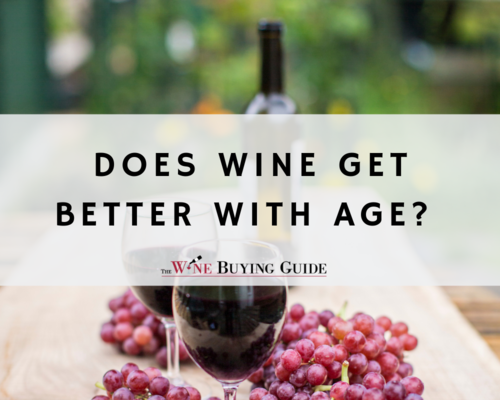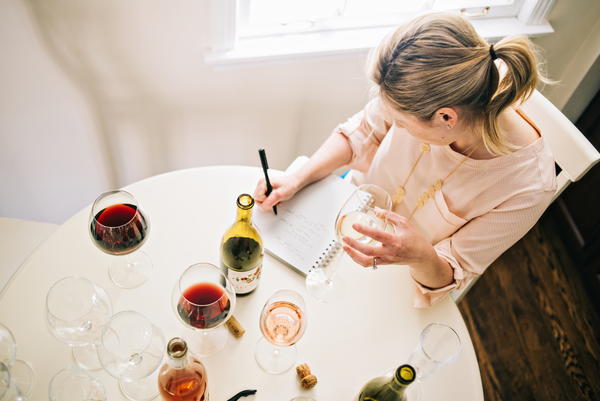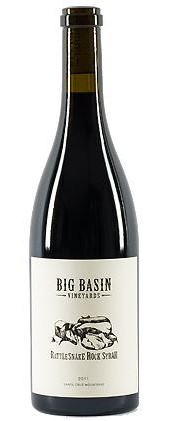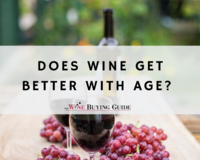Does Wine Get Better with Age?
We answer the age-old question with this guide to aging wine.

When you say something "ages like a fine wine," you mean that the longer something is around, the better the quality. But, does the phrase stem from reality? Does wine get better with age?
We don't like sweeping statements, and the generalization that every wine's flavor profile improves over time is neither accurate nor helpful. Each bottle of wine has a frame of time for optimal fragrance and flavor, and that window of time can vary based on the quality of the wine itself and the type of grape used to make it.
That's why TheWineBuyingGuide did a little research to help you determine the best time to uncork each of your bottles!
To expand your wine knowledge even further, check out some of the other pieces in Wine 101!
Why Age Wine?
Letting wine age is a practice that dates back to the age of ancient Greeks, so it makes sense that the practice is seen as the only way to enjoy your wine drinking experience. Many wine aficionados believe that the time spent aging allows for a deeper development of the wine's bouquet and taste, and will only open a bottle that has been stored in a cellar for at least a decade.
When you store wine for a long period of time, a chemical reaction between the sugars, acids, alcohol, and tannins occurs. That chemical reaction alters a wine's taste, color, and fragrance, though some wines experience more of a transformation than others. When you're purchasing wine from a winery or your local liquor and spirits retailer, it has already gone through an aging process of some kind (otherwise, it would just be grape juice!).
But the longer you wait to uncork after purchasing your bottle, the longer the components of your wine have to mingle and change. Whether those changes will genuinely increase the level at which you enjoy your favorite bottle of wine depends on a number of factors, such as the quality of the wine itself, the type of wine, and the way the bottles are stored.

Can You Age Cheap Wine?
Short answer: it's not recommended. Now, disclaimer, this is a snob-free space. We know that sometimes you can find a delicious bottle wine for less than 15 dollars at a grocery store. But if you think you're going to get more bang for your buck by letting that affordable bottle age for a lengthy amount of time, and end up with a life-changing drink that all of Europe would give a round of applause, you'd be mistaken.
Some experts say that if your bottle costs less than 30 dollars, you should enjoy it as soon as possible, but others argue that that price point isn't a hard-fast rule.
The best rules of thumb for aging cheap versus expensive wine:
- Under $15: Drink your wine sooner rather than later.
- Under $30: You can store it for a few years if you're inclined.
- Over $50: You can age these bottles for over five years.

Which Wines Age the Best?
A common misnomer among wine drinkers is that red wines are the only type to benefit from aging, and that all reds need to be aged to be enjoyed. This misconception comes from the fact that red wine contains more tannins than white wine does. Since the change in flavor profile comes from the chemical reaction of the tannins and the acids of the wine, it's understandable to assume that the more tannins a wine has, the better it is going to age- ergo, red wine ages better than white wine.
There are definitely certain types of white wine that you should not let age, but the same can be said for reds. That's a pretty wishy-washy answer, so we'll break it down.
White Wines You Should Enjoy Right Away:
- Moscato
- Pinot Grigio
- Riesling
- Chardonnay (like this one!)
- Sémillon
- Zinfandel
- Rosé (okay, okay...this one is pink, but the statement still stands.)
- Cabernet Sauvignon
- Syrah (like this one!)
- Pinot Noir (this one is a bit more iffy, but many believe Pinot can really benefit from a couple of years in your wine cellar.)
Tips on Storing Wine
So, now that you know the consensus on wine aging and have decided that your bottle is worth storing, here are some tips to make sure you're getting the most out of your aging process:
- Avoid storing near sunlight (hello wine cellars).
- Store bottles horizontally.
- The best temperature for aging wine is between 55 and 65 degrees Fahrenheit.
- Humidity of around 70 percent is ideal.
- Rotate the bottles every-so-often to avoid the cork from getting dry and cracked on one side.
- Be patient! You didn't age overnight, and neither will your wine.
What do you think? Let us know in the comments!
Read NextRed Wine Sweetness Chart



